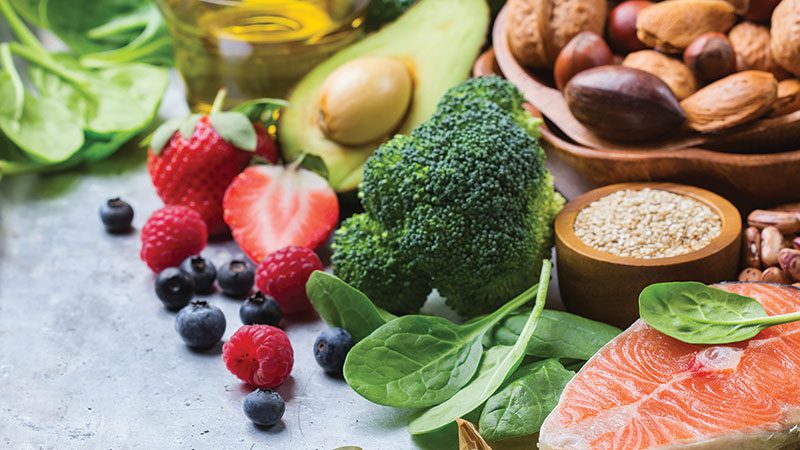What’s new in the Dirty Dozen
This article was originally published in September 2023

Blueberries and green beans joined the 2023 “Dirty Dozen” list of conventional fruits and vegetables that showed the highest level of pesticide residues in tests by the U.S. Department of Agriculture (USDA) and the Food and Drug Administration (FDA).
The neurotoxic organophosphate insecticide acephate, prohibited from use on green beans in 2011, was detected on 6% of conventional green bean samples, according to a report earlier this year by the nonprofit Environmental Working Group (EWG), which compiles the annual list along with a “Clean Fifteen” list showing the lowest levels of pesticide residues.
EWG encourages shoppers to seek out organic versions of the “Dirty Dozen” fruits and vegetables if possible, and prioritizing produce from the “Clean Fifteen” if organics are not an option. The list is EWG’s analysis of fruit and vegetable testing data from USDA and the FDA, reflecting 45,569 samples of 46 different fruits and vegetables. It’s not a real-time report, data is from 2021 and up to 10 years earlier (except pineapple, which is from 2002), and not all the fruits and vegetables are tested every year.
The 2023 Dirty Dozen list is led by strawberries; spinach; and kale, collard and mustard greens, as it was in 2022. Celery and tomatoes dropped off the list.
The 2023 Clean Fifteen list is led by avocados, sweet corn and pineapple, also the same as last year. (Less than 2% of avocado and sweet corn samples had detectable pesticides, the report said, while more than 90% of samples of strawberries, apples, cherries, spinach, nectarines and grapes tested positive for residues of two or more pesticides.)
Carrots joined the Clean Fifteen this year, while cantaloupe dropped off.
Nearly 75% of non-organic fresh produce sold in the U.S. contains residues of potentially harmful pesticides, the report said, and “some of the USDA’s tests show traces of pesticides long since banned by the Environmental Protection Agency. Much stricter federal regulation and oversight of these chemicals is needed.”
The list draws both attention and controversy each year. Those who object to it fear it will discourage people from eating fruits and vegetables instead of guiding them toward different choices. They note that most of the pesticide residues fall within limits allowed in the U.S., and that the number of different pesticides on a sample doesn’t say much about how harmful they are. Those who support it say it’s valuable information that can help shoppers make better choices.
As nutritionist and public health advocate author Marion Nestle wrote in her “Food Politics” blog, “we can debate the degree of harm caused to individuals, especially children, but there is no question pesticides are bad for soil and the environment, and I’ve never heard anything suggesting they are good for us. We would be better off eating fewer of them and producing food in ways that use less of them.
“If EWG is pushing farming in that direction, it needs it. Choose organics as a means to encourage more sustainable production practices (vote with your fork). Advocate for policies to reduce pesticide use (vote with your vote). And thank EWG for holding industry’s feet to the fire.”
The full report is online at ewg.org.
The 2023 Dirty Dozen
- Strawberries
- Spinach
- Kale, collard and mustard greens
- Peaches
- Pears
- Nectarines
- Apples
- Grapes
- Bell and hot peppers
- Cherries
- Blueberries
- Green beans
The 2023 Clean Fifteen
- Avocados
- Sweet corn
- Pineapple
- Onions
- Papaya
- Sweet peas (frozen)
- Asparagus
- Honeydew melon
- Kiwi
- Cabbage
- Mushrooms
- Mangoes
- Sweet Potatoes
- Watermelon
- Carrots
